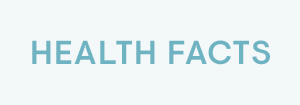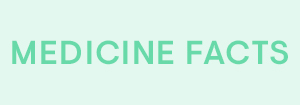Overview
Type 1 Diabetes is a health condition where the pancreas produces very little or no insulin, the hormone that helps sugar ( glucose) enter your body cells to produce energy. Without insulin, blood sugar cannot enter the cells. When this happens, the sugar builds up in the bloodstream leading to Type 1 diabetes or Juvenile Diabetes.
Type 1 diabetes is believed to be caused by an autoimmune reaction ( the body attacking itself). When this happens, it destroys the beta-cells that produce insulin. Genetics, some viruses may contribute to this disease. It is not caused by diet or lifestyle habits. Type 1 diabetes occurs during adolescence or teenage years but can also affect adults. While there’s no cure yet, this condition can be managed by following instructions from your doctor.
Key Facts
- When a person has type 1 diabetes, cells in the pancreas that make insulin are destroyed.
- Insulin is the hormone that helps glucose penetrate your body cells for your body to use as energy. Your body produces glucose from the food you eat.
- Insulin allows the glucose to pass from your blood into your body’s cells.
- When the cells have enough, your liver and muscle tissues store the extra glucose, also called blood sugar, in the form of glycogen.
- In type 1 diabetes, the body cannot process glucose due to the lack of insulin.
- Glucose from your food cannot make its way into the cells. This leaves too much glucose circulating in your blood.
- High blood sugar levels can lead to both short-term and long-term problems.
Symptoms
Type 1 diabetes signs and symptoms can include:
- Frequent urination
- Increased thirst
- Extreme and unexplained hunger
- Bed-wetting in children (who previously did not bed-wet during the night)
- Involuntary weight loss
- Irritability and sudden mood swings
- Fatigue and weakness
- Blurry vision
Diagnosis
Diagnosis for Type 1 diabetes is usually done through a series of tests. While some can be conducted quickly, others require long hours of preparation or monitoring.
This health condition can develop quite fast and suddenly. People, both young children and adults are diagnosed with Type-1 diabetes if they happen to meet the criteria for checking fasting and random blood sugar:
- Fasting blood sugar > 126 mg/dL on two separate tests
- Random blood sugar > 200 mg/dL, along with symptoms of diabetes
- Hemoglobin A1c > 6.5 on two separate tests
However, these criteria are also used to diagnose type 2 diabetes. In some cases, people with type 1 diabetes are sometimes misdiagnosed with type 2 diabetes.
Causes
The cause of Type-1 diabetes cannot be pinned down to one factor. Sometimes, it occurs when the body’s immune system, which usually protects it from viruses and bacteria, attacks and destroys the insulin-producing hormone (islet, or islets of Langerhans). When this happens, glucose which should typically go to the cells remains in the bloodstream causing several health issues.
Sometimes Type-1 Diabetes can be caused by
- Genetics
- Exposure to viruses
- Other environmental factors
Prevention
There is still no known way to prevent type 1 diabetes. But scientists are working on preventing the disease from progressing in newly diagnosed people. However, dietary restrictions are necessary for preventing an already existing increased sugar level in the blood.
Typical Treatments
Treatment for type 1 diabetes includes:
- Taking insulin using an insulin pump
- Counting carbohydrates, fat, and protein
- Frequent blood sugar monitoring
- Eating healthy
- Exercising regularly and maintaining a healthy weight
The goal is to keep your blood sugar level as close to normal as possible to delay or prevent complications. Your target should be keeping your daytime blood sugar levels before meals between 80 and 130 mg/dL (4.44 to 7.2 mmol/L). Also, your after-meal numbers should go no higher than 180 mg/dL (10 mmol/L) two hours after eating.
Insulin and other medications
A person with type 1 diabetes would need lifelong insulin therapy.
Types of insulin are many and include:
- Rapid-acting insulin
- Short-acting (regular) insulin
- Long-acting insulin
- Intermediate-acting (NPH) insulin
Other medications
Alternatively, your doctor may be prescribe other medications such as:
- High blood pressure medications: Your doctor may prescribe angiotensin-converting enzyme (ACE) inhibitors or angiotensin II receptor blockers (ARBs) to help keep your kidneys healthy. These medications are recommended for people with diabetes who have blood pressures above 140/90 millimeters of mercury (mm Hg).
- Aspirin: Your doctor may recommend you take aspirin daily to protect your heart.
- Cholesterol-lowering drugs: People living with diabetes tend to have stiffer cholesterol guidelines because of the higher risk of heart disease or heart failure.
Conclusion
Type 1 diabetes occurs when your immune system destroys insulin-making cells in your pancreas. These are called beta cells. The disease is usually diagnosed in children and young people, so it’s also called juvenile diabetes or insulin-dependent diabetes.
There’s also another condition called secondary diabetes. It is similar to type 1; however, in this case, the beta cells are destroyed by either a disease or an injury to the pancreas rather than by the immune system.
Both of these are different from type 2 diabetes, in which your body does not respond to insulin the way it should.
MOST COMMON






